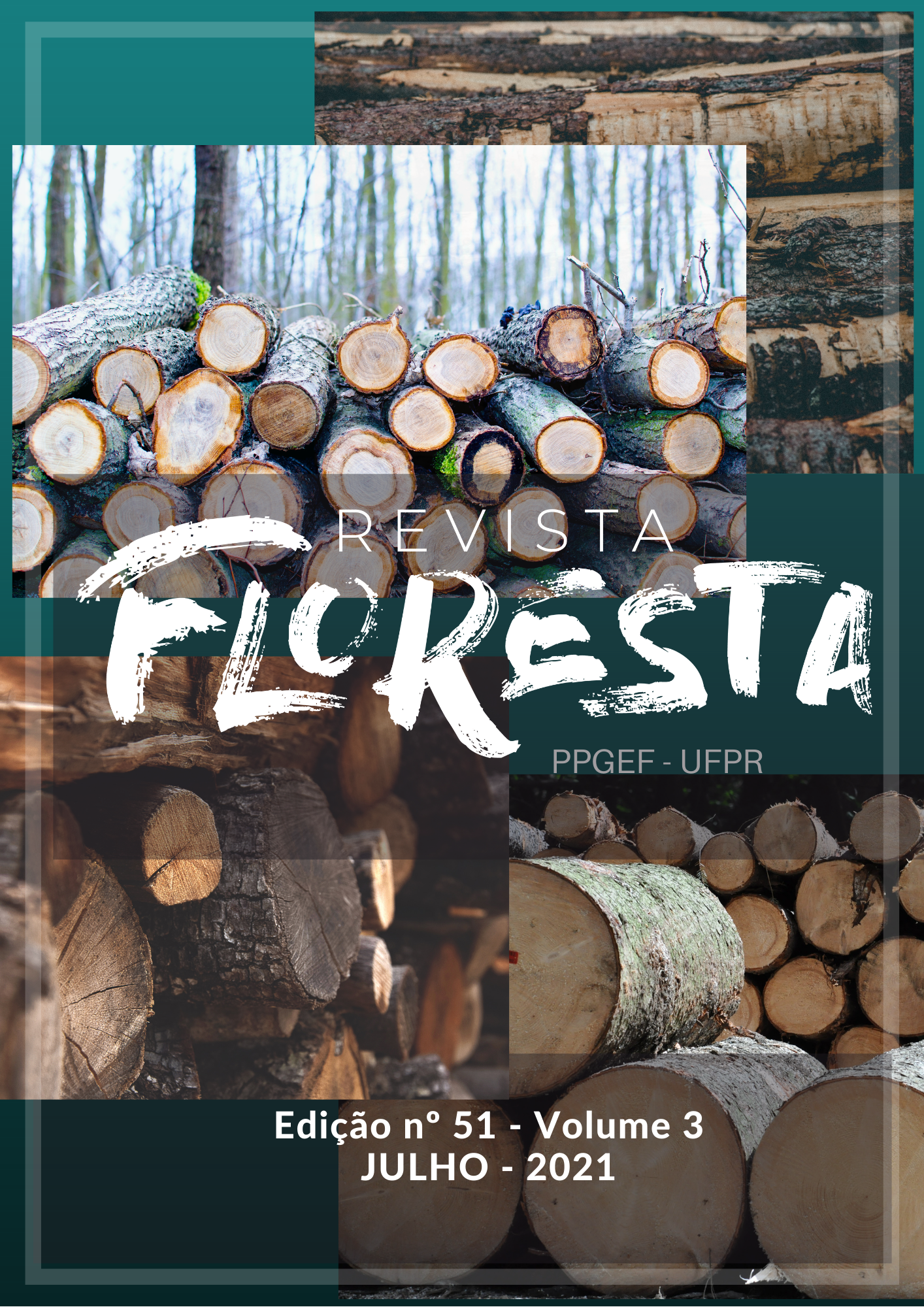MEDIUM DENSITY PARTICLEBOARD USING POSTHARVEST SUGARCANE LEAF STRAW: EFFECT OF RESIN TYPE AND CONTENT, DENSITY AND LAYERS ARRANGEMENT
DOI:
https://doi.org/10.5380/rf.v51i3.70986Palavras-chave:
resin content, board density, physical and mechanical propertiesResumo
Medium Density Particleboard (MDP) using sugarcane leaf straw (SLS) particles, a byproduct of the sugarcane harvesting, bonded with synthetic resins (urea-formaldehyde-UF and phenol-formaldehyde-PF) was produced and evaluated. Panels were tested for physical and mechanical properties, according to Brazilian standard ABNT NBR 14810-2 (2018). Variables of two types of resin, two resin contents, two arrangements of board layers and two board densities were analyzed in 12 treatments experimental design. The results grade the panels as Type 2, according to specifications of the Brazilian standard, for internal/dry use. They are also graded as classes M1 and M2 of the ANSI A208.1 (2016) standards for use as industrial MDP. Board density varied from 0.569 to 0.749 g/cm³. Generally, properties improved with the increase of resin content and density. Among the panels bonded with UF the best result was presented with single layer, 12% solids and density of 0.75 g/cm³. Panels glued with 12% PF showed best results of resistance and improved dimensional stability. As an exploratory study, the results are promising and further work is needed to assure the technical use of this agricultural waste, which is usually burned and seen as an environmental burden.
Downloads
Publicado
Como Citar
Edição
Seção
Licença
Direitos Autorais para artigos publicados nesta revista são do autor, com direitos de primeira publicação para a revista. Em virtude da aparecerem nesta revista de acesso público, os artigos são de uso gratuito, com atribuições próprias, em aplicações educacionais e não-comerciais.A revista, seguindo a recomendações do movimento Acesso Aberto, proporciona acesso publico a todo o seu conteudo, seguindo o principio de que tornar gratuito o acesso a pesquisas gera um maior intrcambio global de conhecimento.
Conteúdos do periódico licenciados sob uma CC BY-NC-SA 4.0



